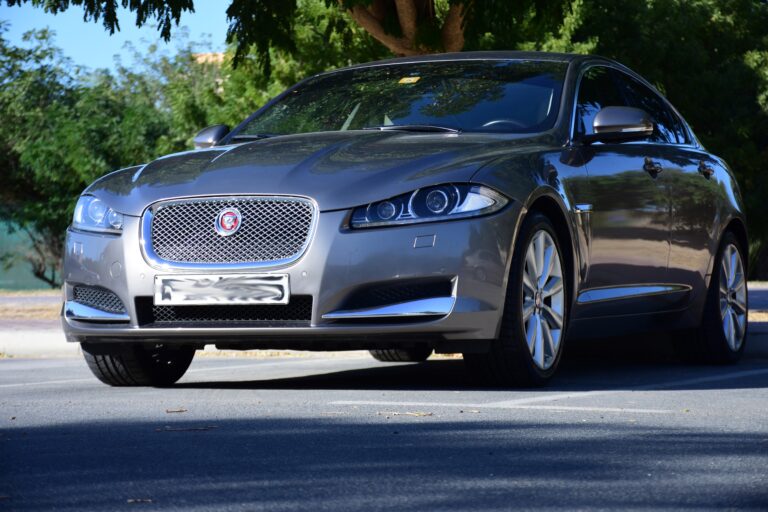Asian Car Brands: A Global Automotive Powerhouse
Asian Car Brands: A Global Automotive Powerhouse cars.truckstrend.com
The automotive landscape has been profoundly shaped by the ingenuity and ambition of Asian car brands. From the bustling streets of Tokyo to the innovative tech hubs of Seoul and the rapidly expanding industrial zones of China, these manufacturers have not only revolutionized vehicle design and production but have also set new global standards for reliability, efficiency, and value. Once seen as niche players, Asian car brands now dominate markets worldwide, offering an incredibly diverse range of vehicles that cater to virtually every consumer need and budget. This comprehensive guide delves into the essence of Asian car brands, exploring their remarkable journey, key characteristics, technological advancements, and the significant impact they continue to have on the global automotive industry.
A Legacy of Excellence: Evolution and Core Strengths
Asian Car Brands: A Global Automotive Powerhouse
The rise of Asian car brands is a story of relentless innovation, meticulous engineering, and strategic foresight. Beginning with Japanese manufacturers in the mid-20th century, companies like Toyota, Honda, and Nissan emerged from post-war reconstruction to focus on producing affordable, fuel-efficient, and incredibly reliable vehicles. Their initial success was built on a commitment to quality control (epitomized by concepts like "Kaizen" or continuous improvement) and understanding the practical needs of the everyday consumer. This foundation of reliability quickly earned them a reputation that transcended borders.
As the decades progressed, South Korean brands like Hyundai and Kia entered the global stage, initially competing on price but rapidly evolving to offer stylish designs, impressive features, and long warranties that challenged the established order. More recently, Chinese manufacturers have burst onto the scene, leveraging their massive domestic market and investing heavily in electric vehicle (EV) technology, connectivity, and smart car features, signaling a new era of competition and innovation.
The core strengths that define Asian car brands include:
- Unwavering Reliability: A cornerstone of their reputation, leading to lower maintenance costs and higher resale values.
- Exceptional Fuel Efficiency: Historically a major selling point, driven by advanced engine technologies and lightweight designs.
- Value for Money: Offering competitive pricing often packed with features that might cost more in Western counterparts.
- Pioneering Technology: From hybrid powertrains to advanced driver-assistance systems (ADAS) and cutting-edge EV platforms.
- Diverse Product Portfolios: Ranging from compact city cars and robust SUVs to luxury sedans and high-performance vehicles.

The Big Three: Japan, South Korea, and China
The vast influence of Asian car brands can be largely categorized by their country of origin, each bringing distinct characteristics to the global market.
Japanese Dominance: Reliability and Innovation

Japanese car brands are synonymous with durability, engineering precision, and a commitment to continuous improvement. They established the benchmark for mass-market vehicle quality and efficiency.
- Toyota: The world’s largest automaker, known for its unparalleled reliability, pioneering hybrid technology (e.g., Prius), and a vast lineup from economy cars to luxury Lexus models and rugged trucks.
- Honda: Celebrated for its efficient engines, innovative engineering, and popular models like the Civic, Accord, and CR-V. Also a major motorcycle manufacturer.
- Nissan: Offers a diverse range of vehicles, from affordable sedans (Versa, Altima) to popular SUVs (Rogue, Pathfinder) and electric vehicles (Leaf).
- Mazda: Distinguished by its focus on driving dynamics, stylish designs, and Skyactiv technology for fuel efficiency and performance.
- Subaru: Renowned for its standard symmetrical all-wheel drive, boxer engines, and strong emphasis on safety and outdoor utility.
- Mitsubishi: Known for SUVs and trucks, though its global passenger car presence has diminished in some markets.
- Luxury Divisions: Lexus (Toyota), Acura (Honda), and Infiniti (Nissan) compete directly with European luxury brands, offering refined vehicles with exceptional build quality and technology.

South Korean Ascent: Design and Value
South Korean brands have undergone a remarkable transformation, shedding their initial budget-focused image to become leaders in design, technology, and value.
- Hyundai: A global powerhouse known for its bold designs, extensive features, long warranties, and rapid advancements in EV technology (e.g., Ioniq series).
- Kia: Sister company to Hyundai, celebrated for its stylish aesthetics, engaging driving dynamics, and award-winning models like the Telluride and EV6.
- Genesis: Hyundai’s luxury division, quickly establishing itself with elegant designs, luxurious interiors, and competitive pricing against established premium brands.
Chinese Revolution: EVs and Global Ambition
Chinese car brands are the fastest-growing segment, propelled by massive domestic demand and aggressive investment in electric vehicles and smart technologies. While their global export presence is still expanding, they are rapidly becoming major players.
- BYD: The world’s largest EV manufacturer by volume (including hybrids), known for its battery technology and diverse range of passenger cars, buses, and trucks.
- Geely: A multinational automotive group that owns Volvo, Polestar, Lotus, and Lynk & Co, alongside its eponymous brand, showcasing a global strategy.
- SAIC Motor: One of China’s largest state-owned automakers, with brands like MG (revived British marque) and Roewe, focusing on both traditional and new energy vehicles.
- Chery, Great Wall Motor (GWM), Changan: Other significant players with growing export ambitions, offering a wide range of SUVs and sedans.
- Nio, Xpeng, Li Auto: Prominent EV startups that are pushing boundaries in battery technology, autonomous driving, and premium user experience, often referred to as "China’s Tesla challengers."
Pioneering Technology and Sustainability
Asian car brands are at the forefront of automotive technological advancement, particularly in the realm of sustainable mobility.
- Hybrid Technology: Toyota virtually invented the mass-market hybrid with the Prius, and this technology has since been refined and adopted across almost every major Asian brand.
- Electric Vehicles (EVs): Asian brands are aggressively investing in and launching a wide array of EVs. Chinese brands like BYD, Nio, and Xpeng are leading in battery development and smart EV features, while Hyundai, Kia, and Toyota are rapidly expanding their EV offerings with dedicated platforms and innovative designs.
- Hydrogen Fuel Cell Vehicles: Toyota (Mirai) and Hyundai (Nexo) are pioneers in developing and commercializing hydrogen fuel cell electric vehicles (FCEVs), offering an alternative zero-emission solution.
- Autonomous Driving and Connectivity: Significant resources are being poured into developing advanced driver-assistance systems (ADAS) and fully autonomous driving capabilities. Connectivity features, intuitive infotainment systems, and over-the-air (OTA) updates are standard across many new models.
Global Impact and Market Penetration
The influence of Asian car brands extends far beyond their home continents. They have successfully penetrated and often dominate key markets in North America, Europe, Southeast Asia, Africa, and Latin America. Their ability to adapt to local tastes, economic conditions, and regulatory environments has been a critical factor in their global success. They offer vehicles that are both globally appealing and locally relevant, contributing significantly to the automotive industries and economies of countries worldwide through manufacturing plants, research and development centers, and extensive dealership networks.
Why Choose an Asian Car Brand?
For many consumers, choosing an Asian car brand is a decision rooted in several compelling benefits:
- Reliability and Durability: Lower chances of breakdowns and a longer lifespan.
- Excellent Resale Value: Their reputation for reliability translates into strong residual values.
- Fuel Efficiency: Historically strong in this area, which remains a key advantage amidst fluctuating fuel prices.
- Advanced Technology: Access to cutting-edge infotainment, safety features, and powertrain options.
- Strong Warranty Coverage: Especially from Korean brands, offering peace of mind.
- Wide Range of Options: A vehicle for every segment, from compact city cars to luxury SUVs.
Navigating the Choices: Tips for Buyers
With such a vast array of options, choosing the right Asian car brand and model can seem daunting. Here are some practical tips:
- Define Your Needs and Budget: Determine what size, type (sedan, SUV, EV), and features you need, and establish a clear budget range.
- Prioritize Your Values: Is reliability paramount? Are you seeking the latest tech? Do you need maximum fuel efficiency or cargo space?
- Research Specific Models: Once you’ve narrowed down brands, dive deep into specific models. Read reviews, compare specifications, and look at long-term reliability reports.
- Consider Total Cost of Ownership: Factor in insurance costs, maintenance, and potential resale value, not just the purchase price.
- Test Drive Thoroughly: Never buy a car without a comprehensive test drive. Pay attention to comfort, handling, visibility, and how intuitive the controls are.
- Explore Different Powertrains: With the rise of hybrids and EVs, consider if an alternative powertrain suits your driving habits and access to charging infrastructure.
- Check Safety Ratings: Look for high safety ratings from organizations like NHTSA (North America) or Euro NCAP (Europe).
Challenges and the Road Ahead
Despite their dominance, Asian car brands face several challenges:
- Intensifying Competition: From traditional Western automakers who are rapidly catching up in electrification and design, as well as new EV startups globally.
- Supply Chain Disruptions: Global events and geopolitical tensions continue to impact production and delivery.
- Sustainability and Emissions Regulations: Meeting increasingly stringent global emissions standards and transitioning fully to carbon-neutral manufacturing.
- Brand Perception in Luxury Segments: While Lexus and Genesis have made significant inroads, some Asian brands still work to overcome perceptions in the ultra-luxury and performance segments.
- Geopolitical Factors: Trade tensions and political relationships can influence market access and consumer sentiment.
However, their agility, robust R&D capabilities, and commitment to innovation position them well to navigate these challenges and continue leading the automotive world into a more sustainable and technologically advanced future.
Representative Pricing Guide for Asian Car Brands
Below is a general guide to the representative price ranges for popular vehicle types offered by prominent Asian car brands. Please note that prices vary significantly based on brand, specific model, trim level, optional features, region, and market conditions. These figures are approximate and for illustrative purposes (all prices in USD).
| Vehicle Type | Representative Price Range (USD) | Common Asian Brands/Models (Examples) | Key Features / Benefits |
|---|---|---|---|
| Compact Sedan | $20,000 – $30,000 | Honda Civic, Toyota Corolla, Hyundai Elantra, Mazda3, Kia Forte | Fuel-efficient, reliable, easy to maneuver, good for city driving. |
| Mid-size Sedan | $25,000 – $38,000 | Honda Accord, Toyota Camry, Hyundai Sonata, Kia K5, Nissan Altima | Spacious, comfortable, excellent fuel economy, strong safety ratings. |
| Compact SUV | $26,000 – $40,000 | Toyota RAV4, Honda CR-V, Hyundai Tucson, Kia Sportage, Mazda CX-5, Subaru Forester, Nissan Rogue | Versatile, good ground clearance, optional AWD, popular family vehicles. |
| Mid-size SUV | $32,000 – $55,000 | Toyota Highlander, Honda Pilot, Hyundai Santa Fe, Kia Sorento/Telluride, Mazda CX-90, Subaru Ascent, Nissan Murano | More cargo/passenger space, often 3-row seating, comfortable for long trips. |
| Luxury Sedan | $45,000 – $80,000+ | Lexus ES/LS, Genesis G70/G80/G90, Acura TLX/RLX, Infiniti Q50/Q60 | Premium materials, advanced technology, refined driving experience, strong reliability. |
| Luxury SUV | $50,000 – $90,000+ | Lexus RX/GX/LX, Genesis GV70/GV80/GV90, Acura MDX/RDX, Infiniti QX60/QX80 | High-end interiors, powerful engines, advanced safety features, status symbol. |
| Entry-Level EV | $35,000 – $55,000 | Nissan Leaf, Hyundai Kona Electric, Kia Niro EV, BYD Atto 3 (Yuan Plus) | Affordable entry into EV ownership, good range for daily commuting, lower running costs. |
| Premium EV | $50,000 – $80,000+ | Hyundai Ioniq 5/6, Kia EV6, Toyota bZ4X, Nio ES6/ET5, Xpeng P7/G9 | Longer range, faster charging, cutting-edge technology, luxurious interiors. |
| Pickup Truck | $28,000 – $60,000+ | Toyota Tacoma/Tundra, Nissan Frontier/Titan, Mitsubishi Triton/L200 (market dependent) | Robust, high towing capacity, off-road capability, popular for work and recreation. |
Disclaimer: All prices are estimates and subject to change based on market conditions, trim levels, optional features, regional taxes, and incentives. Always consult official dealership pricing for the most accurate information.
Conclusion
Asian car brands have journeyed from humble beginnings to become undisputed leaders in the global automotive industry. Their unwavering commitment to quality, relentless pursuit of innovation, and ability to deliver exceptional value have cemented their position in the hearts and garages of consumers worldwide. From the legendary reliability of Japanese engineering to the stylish ascent of South Korean design and the disruptive force of Chinese electric vehicle technology, Asian automakers continue to redefine mobility. As the industry hurtles towards an electric, autonomous, and connected future, it is clear that Asian car brands will remain at the forefront, driving progress and shaping the way we move for generations to come.
Frequently Asked Questions (FAQ)
Q1: Which Asian car brand is the most reliable?
A1: While reliability is a hallmark of many Asian brands, Toyota and its luxury division Lexus consistently rank at the top in various reliability surveys (e.g., Consumer Reports, J.D. Power). Honda and Mazda also perform exceptionally well.
Q2: Are Chinese car brands safe and reliable yet?
A2: Chinese car brands have made significant strides in safety and reliability. Many newer models, especially EVs, incorporate advanced safety features and achieve good crash test ratings in their domestic markets and increasingly in export markets (e.g., Euro NCAP ratings for some BYD and Nio models). Reliability is rapidly improving, but as with any newer market entrant, long-term data is still accumulating.
Q3: Why are Asian cars often considered more fuel-efficient?
A3: Historically, Asian manufacturers, particularly Japanese ones, prioritized fuel efficiency due to higher fuel costs and smaller vehicle preferences in their home markets. This led to innovations in engine design, lightweight materials, and hybrid technology, which became a global competitive advantage.
Q4: Do Asian luxury brands like Lexus and Genesis compete with European luxury cars?
A4: Absolutely. Brands like Lexus (Toyota) and Genesis (Hyundai) have successfully established themselves as credible alternatives to traditional European luxury marques (e.g., BMW, Mercedes-Benz, Audi). They offer comparable levels of luxury, performance, technology, and often surpass European rivals in terms of reliability and value for money.
Q5: What is the main difference between Japanese and South Korean car brands today?
A5: While both offer reliability and value, Japanese brands are often seen as prioritizing meticulous engineering, long-term durability, and a more conservative, tried-and-true approach. South Korean brands (Hyundai, Kia, Genesis) have emphasized bold, contemporary design, feature-rich interiors, and aggressive warranties to gain market share, often perceived as offering more "bang for your buck" with a fresh aesthetic.
Q6: Are Asian car brands leading the way in electric vehicles (EVs)?
A6: Yes, Asian brands are significant leaders in the EV space. Chinese brands like BYD are global volume leaders, and startups like Nio and Xpeng are pushing technological boundaries. Hyundai and Kia have also launched highly successful and critically acclaimed EVs (e.g., Ioniq 5, EV6), while Toyota is rapidly expanding its EV lineup, building on its hybrid legacy.






